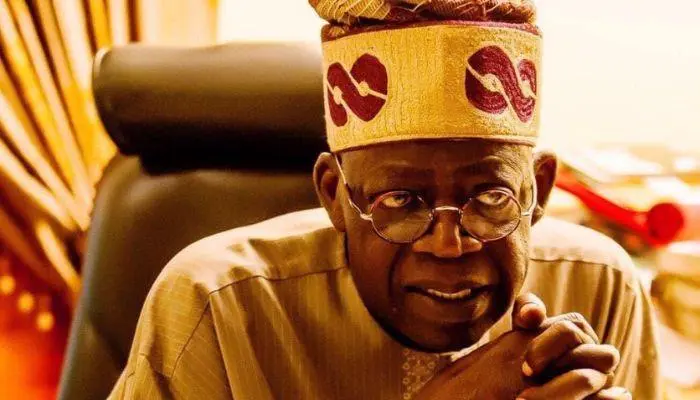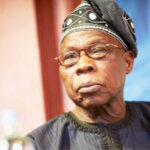President Bola Ahmed Tinubu’s nationwide broadcast on Monday, July 31, 2023, meant to address the pains his fiscal and monetary policies have foisted upon Nigerians, was very timely. Indeed, we commend him for engaging with Nigerians and making them to understand that he hears and understands what citizens are going through. We also urge him to make such engagements a critical part of his administration.
However, the speech itself was more populist and poetic than existential. If anything, it was devoid of the kind of immediate measures needed to cushion the effects of the grinding implications of the subsidy removal and the collapse of the exchange rate tiers on the people. In the speech, delivered to take the sail off the impending protest by the organized Labour, which was due in about a few hours, the president outlined interventions like N75 billion for 75 enterprises; N125 billion for Micro, Small and Medium Enterprises (MSME); release of 200,000 metric tons of grains from strategic reserves to households; N200 billion for rice, maize, wheat, and cassava cultivation; N100 billion for gas-powered buses, and other incentives.
For Nigerians, whose standard of living and businesses have crumbled due to the implications of the new monetary and fiscal measures announced by the Tinubu administration, last Monday’s speech was very hollow. The president did not mention local refining of petroleum products to bring down the prices of petroleum products; he failed to provide concrete plans for the mass transit transportation systems; he did not lift the embargo on employment, imposed by the immediate past administration in the last eight years; and he did not speak emphatically on when wages and salaries will be raised.
Without mincing words, the inflation that has accompanied Tinubu’s policies has caused the collapse of small scale businesses and stifled the operation of many vibrant industries because all small businesses depend largely on the Premium Motor Spirit (PMS), from the commercial motorcyclist to the barber in our neighborhoods. Many big enterprises that rely on the dollar to source raw materials are also in shock. The exchange rate has skyrocketed beyond what is affordable in the current precarious economic climate. The cost of every item needed for basic survival in Nigeria has literally quadrupled, taking a lot of resources from the ordinary Nigerian.
The president claimed that subsidy was “being funneled into the deep pockets and lavish bank accounts of a select group of individuals.” This is a populist argument. However, no measures are in place to recover what has been stolen or to punish the ‘elite of the elite’ who survived in the filthy lucre. The Nigeria Customs Service was established to police Nigeria’s borders and halt the smuggling of petroleum products; the Economic and Financial Crimes Commission (EFCC) is meant to investigate and prosecute the corrupt; the Nigeria Security and Civil Defense Corps (NSCDC) was set up to protect public infrastructure, etc. If through their actions or inactions, they contributed to the failure of the subsidy regime, why are heads not rolling at these agencies, in addition to those who actually took the money and failed to deliver?
In a nutshell, we unequivocally assert that the palliative measures announced so far are not realistic. They cannot provide temporary relief to the people, not to mention a permanent solution to the rising cost of living in Nigeria. The government must return to the drawing board to properly dissect the disjointed monetary and fiscal policies that are responsible for the chaotic economic environment in which Nigerians have found themselves. There must be a sustainable approach to whatever reform the Tinubu administration must put in place to tackle Nigeria’s economic woes.
The government should work towards redistributing the money it has taken away from the people through the liberalization and increase in the price of the PMS. The current wage structure in Nigeria is unrealistic; Nigeria pays one of the lowest wages in Africa. The government cannot raise the cost of living, devalue the Naira, and be double-minded about increasing workers’ salaries. Government must lift the 8-year embargo on employment to ensure Nigerian youths are gainfully employed in their numbers.
Furthermore, the government must cut the cost of governance and channel the savings from it into the provision of infrastructure. So far, we have not seen any change in that regard. And something must be done about that urgently. If government says it cannot subsidize petroleum products, it must find a way of ameliorating the pain of the people by subsidizing other sectors. In many countries, health, transportation, education, and several other sectors are subsidized to make them affordable to the majority of the population. The Tinubu administration cannot run away from this reality. The palliatives announced last Monday are not substantial enough to curb the suffering being experienced in Nigeria since May 29, 2023 and this administration must do more and urgently too.

 Join Daily Trust WhatsApp Community For Quick Access To News and Happenings Around You.
Join Daily Trust WhatsApp Community For Quick Access To News and Happenings Around You.


